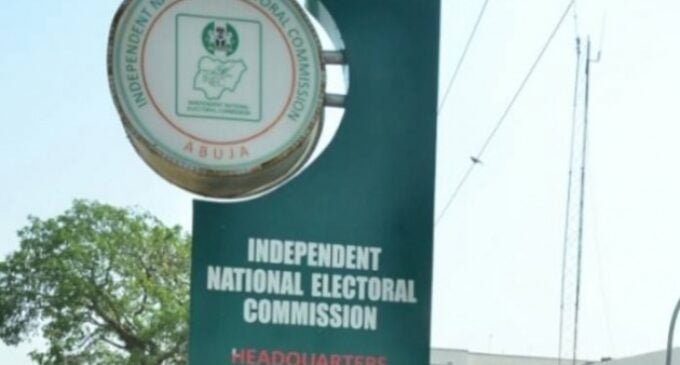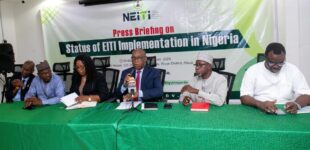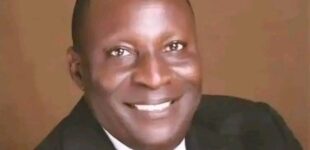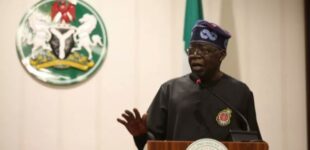INEC: No pressing reason to create new electoral constituencies

The Independent National Electoral Commission (INEC) says there are no pressing reasons for the creation of new electoral constituencies or review of their boundaries.
The house of representatives on Wednesday asked the federal government to direct INEC to create additional federal constituencies in the country.
The lower chamber said the directive is in compliance with the provisions of the 1999 constitution as amended.
Reacting in a statement issued by Festus Okoye, its commissioner for information and voter education, on Friday, the commission said while the division of the country into electoral constituencies is its sole responsibility, “subsequent revision of the constituencies and/or adjustment of their boundaries are the joint responsibilities of the commission and the national assembly”.
“Consequently, any such revision or adjustment must be passed by a resolution of the two houses of the National Assembly, namely the Senate and the House of Representatives,” INEC said.
The commission said it has been discussing with the national assembly to arrange a meeting with its leadership in a bid to address some of the issues in the ”division, revision and alteration of electoral constituency boundaries” in Nigeria.
INEC said it is not bound by the constitution to revise or alter the boundaries of constituencies every 10 years.
“For the avoidance of doubt, Section 73 (1) of the Constitution provides for that to happen at intervals of “not less than 10 years”. This implies that it can only happen from 10 years and above! Therefore, the Commission is not in breach of the Constitution, since the revision could happen in 10 years or more,” it said.
The electoral umpire said the constitution also provides that the commission may embark on revision and adjustment after a national census, creation of states or by an Act of the national assembly.
“None of these conditions actually exists at the moment. The last population census was conducted in 2006, about fifteen years ago. The Commission feels that revising and/or altering constituencies based on 15-year-old population data is inappropriate because the well-known rapidity of population changes in Nigeria would make nonsense of any outcome,” it said.
“In any case, the National Population Commission is working on conducting another census and it seems reasonable to await its outcome. On the other hand, no new States have been created in Nigeria since the Constitution came into effect in 1999 nor is there an Act of the National Assembly requesting INEC to activate the relevant sections of the Constitution on division, revision and alteration of electoral constituencies.
“On the State constituencies to be created in each State of the federation, the Constitution provides that the number for each State should be three or four times the number of its federal constituencies (seats in the House of Representatives), subject to a minimum of 24 and a maximum of 40. The problem is that some States presently have three times the number of their seats in the House of Representatives, others have four times; others have the minimum of 24 and yet others have reached the maximum of 40. For some, their present number of State Assembly constituencies is neither three nor four times the number of their House of Representative seats. This motley distribution calls for more clarity in the division, revision and alteration of electoral constituency boundaries, which in fact may require constitutional amendments.
“There is also the question of the so-called suppressed constituencies. Essentially, these are constituencies that existed prior to the coming into force of the 1999 Constitution. The canvassers for these constituencies argue that they have been “suppressed” in the present dispensation. The Commission has consistently argued that the idea of “restoration of a constituency” is both legally questionable and practically improbable. It is questionable to ask INEC to restore constituencies that existed under an old constitutional order in the present one.
“For example, the present Constitution provides for the maximum seats in the House of Representatives and the multiples of that for State House of Assembly constituencies. Restoring all old constituencies from a different constitutional order would definitely mean that the number set by the present Constitution may be exceeded. Besides, there have been many previous constitutional orders, each with its own specification of limits on the number of constituencies. Furthermore, which of the old constitutional provision should we restore? Perhaps, some people may even ask for the restoration of the four constituencies in Calabar and Lagos created in 1922 following the Clifford Constitution.
“Also, it is a misnomer to talk of suppressed constituencies because some of the constituencies have been divided territorially as a result of State creation and boundary adjustments, creation of Local Government Areas, as well as creation of the subsisting electoral constituencies.
“Some of the court judgements in the cases on these so-called suppressed constituencies have agreed with the position of the Commission, while others have gone for the “suppressed constituency” canvassers. In yet other cases, the Commission has appealed the judgments.
“These are some of the challenges that have constrained the Commission on the question of revision and adjustment of electoral constituencies. Yet, the Commission is not oblivious of the importance of balanced constituency delimitation on the democratic and electoral processes. However, these are complicated legal, political and practical issues. This is why the Commission has requested for a meeting with the leadership of the National Assembly to resolve these issues and build the necessary consensus that will ensure that any revision of electoral boundaries will be passed by the National Assembly, unlike in the past when the Commission’s proposals on revision and alteration of electoral constituencies received no response from the Assembly.”
















There are no comments at the moment, do you want to add one?
Write a comment